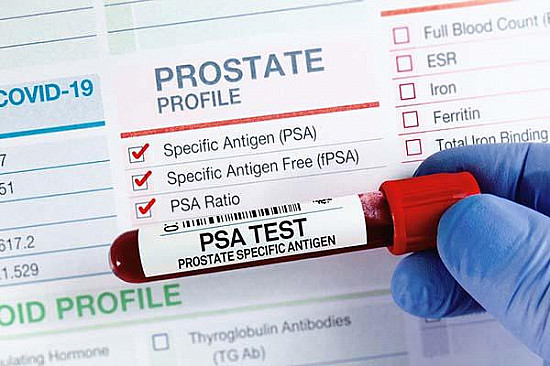Might a PSA test at age 60 simplify decision-making about screening?
By Marc B. Garnick, M.D., Editor in Chief, Annual Report on Prostate Diseases
Almost daily, a man asks me, “Should I have a PSA test or not?” But this seemingly straightforward question doesn’t have an easy answer.
Since its introduction in the late 1980s, the prostate-specific antigen (PSA) test has been a routine part of the average man’s medical checkup. The test measures levels of a protein produced by the prostate and can predict whether a man has cancer. In fact, it has enabled doctors to diagnose more than 80% of prostate cancers before they spread, when they are at their most curable stage. If you’re over 50, you’d think that having the test regularly would be a no-brainer.
Unfortunately, the test has significant shortcomings. For one thing, PSA isn’t specific for cancer. Although the likelihood of cancer increases as PSA rises, levels considered abnormal—in the range of 4 to 10 ng/ml—occur in men who don’t have cancer. Adding to the confusion, 15% of men with a PSA below 4 ng/ml who have a biopsy actually do have cancer. That’s right: men with a “normal” PSA test result may have cancer, and most with an “abnormal” result don’t.
Furthermore, the test can’t distinguish potentially deadly tumors from insignificant ones. Some tumors grow and spread rapidly, but many grow so slowly that they may never cause problems during a man’s lifetime. In such cases, the cancer doesn’t need to be treated.
But when a man learns that he has cancer, he often can’t just live with it. He wants the cancer out, and he agrees to aggressive treatment, usually surgery or radiation therapy. The complications of treatment that often follow—namely impotence and incontinence—may cause more trouble than the disease ever would have. And two large studies have shown that PSA screening saves few lives. That’s why both physicians and patients struggle to decide whether screening makes sense.
A new report in the British medical journal BMJ might help simplify decision-making. It suggests that a single PSA measurement at age 60 can predict the likelihood that a man will die of prostate cancer by age 85, and that at least half of men no longer need to be screened after age 60.
Researchers from Memorial Sloan-Kettering Cancer Center in New York and Lund University in Malmo, Sweden, assessed PSA levels in 1,167 Swedish men at age 60 and then followed them until they died or reached their 85th birthday. In total, 126 men developed prostate cancer, and 35 died of the disease. They found that men with PSA levels of 2 ng/ml or higher at age 60 were 26 times more likely to die from prostate cancer over the next 25 years than men with scores below 1 ng/ml.
These findings suggest that screening efforts could be targeted at men with a PSA above 1 ng/ml at age 60, shifting the risk-benefit ratio, the researchers write. They also say, “Our findings suggest that 60-year-old men with low [PSA] concentrations can be reassured that even if they do harbor cancer, it is unlikely to become apparent during their lifetime and even less likely to become life-threatening.”
Yet, they continue, “A raised prostate-specific antigen is far from being an inevitable harbinger of advanced prostate cancer.” Their findings show that a 60-year-old man with a PSA just over 2 ng/ml has only about a 6% chance of dying of prostate cancer over the next 25 years.
However, the study has some significant limitations that need consideration. For starters, the number of participants (and thus the number of men who developed prostate cancer) was small. In addition, the participants all hailed from Sweden, known for its homogenous population. We have no idea whether the study findings would apply to a larger, more diverse group of men—or to specific racial and ethnic groups, such as African Americans, who have the highest risk of developing and dying from prostate cancer. I’m skeptical.
But I’m also curious to know what you think. If you don’t have your PSA checked, do these findings reassure you that you’ve made the right choice? If you have opted for PSA screening in the past, does this study make you think you can stop?
Posted Oct. 8, 2010
About the Author

Marc B. Garnick, MD, Editor in Chief, Harvard Medical School Annual Report on Prostate Diseases; Editorial Advisory Board Member, Harvard Health Publishing
Disclaimer:
As a service to our readers, Harvard Health Publishing provides access to our library of archived content. Please note the date of last review or update on all articles.
No content on this site, regardless of date, should ever be used as a substitute for direct medical advice from your doctor or other qualified clinician.















